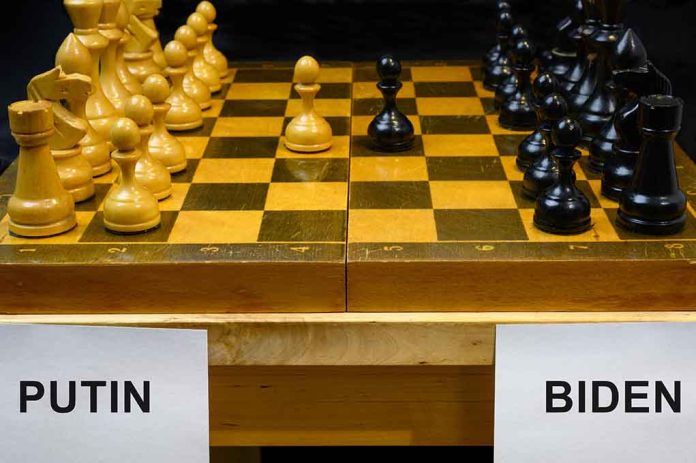
Sudoku, not chess or puzzles, is the most effective brain exercise for seniors over 60 looking to regain memory and focus comparable to younger individuals, according to recent scientific research.
Key Takeaways
- Regular Sudoku practice has been found to help seniors achieve cognitive performance similar to younger individuals
- Just 30 minutes of exercise most days (150 minutes weekly) provides significant cognitive benefits, increasing hippocampus size and reversing age-related brain shrinkage
- Varied brain activities, including crossword puzzles, 3D video games, and computerized brain training, enhance different cognitive skills
- New technology, like neurofeedback devices, offers additional options for brain training, though clinical evidence is still developing
- Lower-intensity activities such as yoga and tai chi are also effective alternatives for improving brain health
The Surprising Brain Exercise Seniors Should Prioritize
While most people assume chess or standard puzzles are the best mental exercises for aging minds, health experts now point to Sudoku as the superior option for maintaining cognitive function after 60. This popular number puzzle game significantly improves attention, memory, and reasoning skills when practiced regularly. The benefits extend beyond simple enjoyment – research shows dedicated Sudoku players can maintain cognitive abilities comparable to those decades younger, effectively turning back the mental clock.
“NEITHER CHESS NOR PUZZLES: THE EXERCISE RETIREES OVER 60 SHOULD DO TO IMPROVE MEMORY, EXPERTS SAY”
For optimal cognitive maintenance, experts recommend creating a diverse brain exercise routine. Crossword puzzles have demonstrated effectiveness in delaying memory decline while improving word recall and concentration. Three-dimensional video games enhance spatial awareness and recognition memory, while computerized brain training games strengthen planning abilities, rapid thinking, and short-term memory retention. This variety of mental workouts ensures multiple cognitive pathways remain active and healthy.
Physical Exercise: The Underappreciated Brain Booster
Despite the popularity of mental puzzles, research increasingly points to physical exercise as potentially the most powerful intervention for brain health. A comprehensive analysis of data from over 250,000 participants across 2,700 studies confirms that regular physical activity significantly improves brain function, enhancing cognition, memory, and executive function. These benefits extend across all age groups, with particularly notable memory improvements in older adults.
“HERE’S A SIMPLE, SCIENCE-BACKED WAY TO SHARPEN YOUR THINKING AND IMPROVE YOUR MEMORY,” said Ben Singh, Ashleigh E. Smith, University of South Australia.
The cognitive benefits of exercise can be seen after just 12 weeks of consistent activity, with optimal results requiring at least 30 minutes of exercise most days, totaling around 150 minutes weekly. More impressive is the discovery that regular physical activity can actually increase the size of the hippocampus, reversing the brain shrinkage typically associated with aging. This physical growth corresponds directly with improved memory function and cognitive capacity.
Emerging Technologies for Brain Training
As technology advances, new tools for cognitive enhancement are becoming available to seniors. The Mendi Headset represents this new frontier, using non-invasive functional near-infrared spectroscopy (fNIRS) technology to measure blood flow and oxygenation in the prefrontal cortex. This neurofeedback device aims to improve focus, sleep quality, and mood regulation by allowing users to visualize and optimize their brain activity in real time.
“I TRIED THE MENDI BRAIN TRAINING DEVICE TO SEE IF IT COULD HELP MY (LACK OF) FOCUS — HERE’S MY HONEST REVIEW,” said Carleigh Ferrante.
The Mendi system pairs with a smartphone app that gamifies brain training, providing scores and tracking progress over time. While the technology shows promise, with advantages including affordability, ease of use, and short training sessions, potential users should note it lacks FDA clearance and extensive clinical validation. For seniors considering such devices, they represent an interesting supplement to more established brain-training methods, but not a replacement for proven exercises and activities.
Practical Brain Health Strategies for Daily Life
For seniors who find intense physical exercise challenging, research confirms that lower-intensity activities like yoga, tai chi, and even active video games provide significant cognitive benefits. These gentler options improve blood flow to the brain while building neural connections through learning new movements and positions. The key is consistency rather than intensity, making these activities particularly suitable for older adults with mobility limitations or health concerns.
The cognitive benefits of physical and mental exercise extend beyond memory enhancement, improving sleep quality and reducing anxiety and depression, common challenges for many seniors. Progressive workplaces and retirement communities are increasingly incorporating movement breaks and brain exercise programs into daily routines to improve focus and maintain mental sharpness. This holistic approach recognizes that brain health requires attention to multiple factors, including physical activity, mental stimulation, proper nutrition, and stress management.













